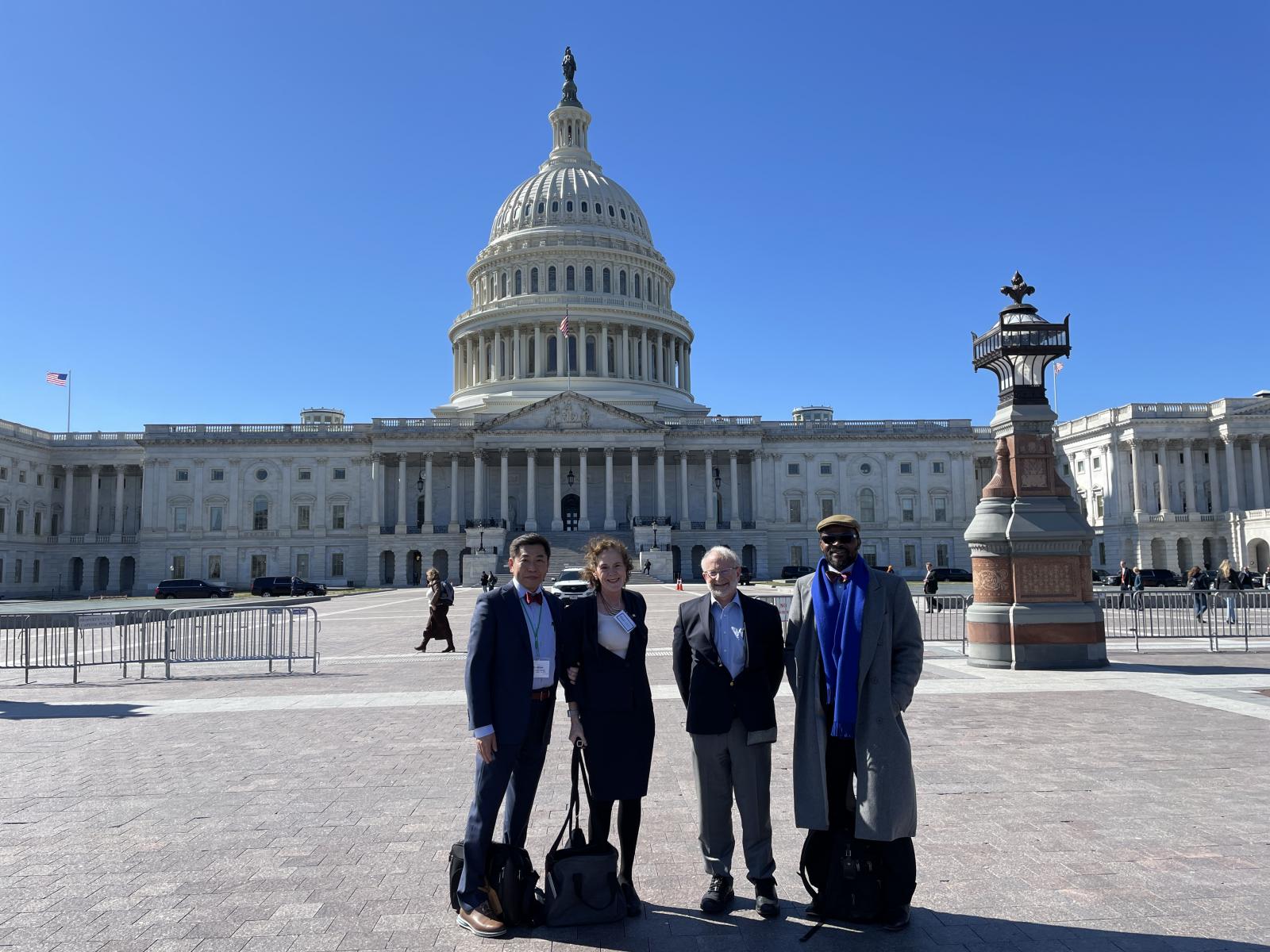
ASCO Volunteers on Capitol Hill
On March 7, Association for Clinical Oncology (ASCO) volunteers joined more than 85 representatives of One Voice Against Cancer (OVAC) on Capitol Hill for a lobby day in support of federal funding for medical research. OVAC is a coalition of organizations representing cancer researchers, physicians, and nurses—as well as patients, survivors, and their families—focused on long-term, sustained federal funding for cancer research and prevention.
Thank you to the following ASCO volunteers for participating in the event:
- Richard Goldberg, MD, FACP, FASCO
- Raymond Osarogiagbon, FACP, MBBS
- Joan Schiller, MD, FASCO
- Andrew Wang, MD
Over the course of the day, participants met with Members of Congress and their staff to discuss four federal research funding requests:
- Support providing $51 billion for the National Institutes of Health (NIH): ASCO and OVAC expressed gratitude that Congress has shown bipartisan support in increasing funding to the NIH over the last several years, and asked for continued long-term, sustained funding to maintain the pace of progress and discovery.
- Support providing $9.988 billion for National Cancer Institute (NCI): Between FY2013 – FY2022, grant applications to NCI rose by 45% compared to 20% at other Institutes and Centers. As a result, 6 out of 7 research proposals go unfunded every year. The $9.988 billion requested by NCI in its professional judgement budget will allow the agency to advance the President’s cancer moonshot goal of reducing the cancer death rate by 50% over the next 25 years and fund the next generation of young investigators.
- Provide $472.4 million for the Centers for Disease Control and Prevention (CDC), including $63.4 million for cancer registries: Approximately 50% of cancer deaths could be prevented and the substantial cost of the treatment of advanced disease could be reduced through the use of existing evidence-based prevention and early detection strategies supported by CDC’s Division of Cancer Prevention and Control. The state-based cancer registries within the division’s National Program of Cancer Registries (NPCR) gather, manage, and analyze data about cancer incidence, stage at diagnosis, and treatment. With $63.4 million, the NPCR could expand real-time reporting in up to 16 states.
- Support providing at least $1.5 billion for the Advanced Research Projects Agency for Health (ARPA-H): The newly established ARPA-H will help to realize many patient-centric, real-world opportunities by pairing NCI’s basic and translational research expertise with ARPA-H’s envisioned capability to foster rapid innovation at unprecedented scale. While the agency is still taking shape, continued funding is necessary for it work on these promising biomedical breakthroughs for cancer patients and public health. Funding for ARPA-H should be in addition to requested funding for NIH and should not displace or reduce increases in funding to NCI and NIH.
Visit the ACT Network to ask your lawmakers to prioritize federal funding for cancer research.
Bookmark ASCO in Action for news, advocacy, and analysis on cancer policy.











